Can a Dachshund Eat Pasta?
Date Published: February 12, 2024 | Last Modified: February 16, 2024
Before diving into the world of Pasta for dachshunds, rest assured - these little pups can indeed enjoy a plate of Pasta now and then. In this article, we will explore the potential health benefits, as well as the pros and cons of incorporating Pasta into your dachshund's diet. We'll also address any safety concerns surrounding feeding Pasta to dachshunds, including whether it is toxic to them. So, if you've ever wondered if Pasta is good for your furry friend, keep reading to find out more.
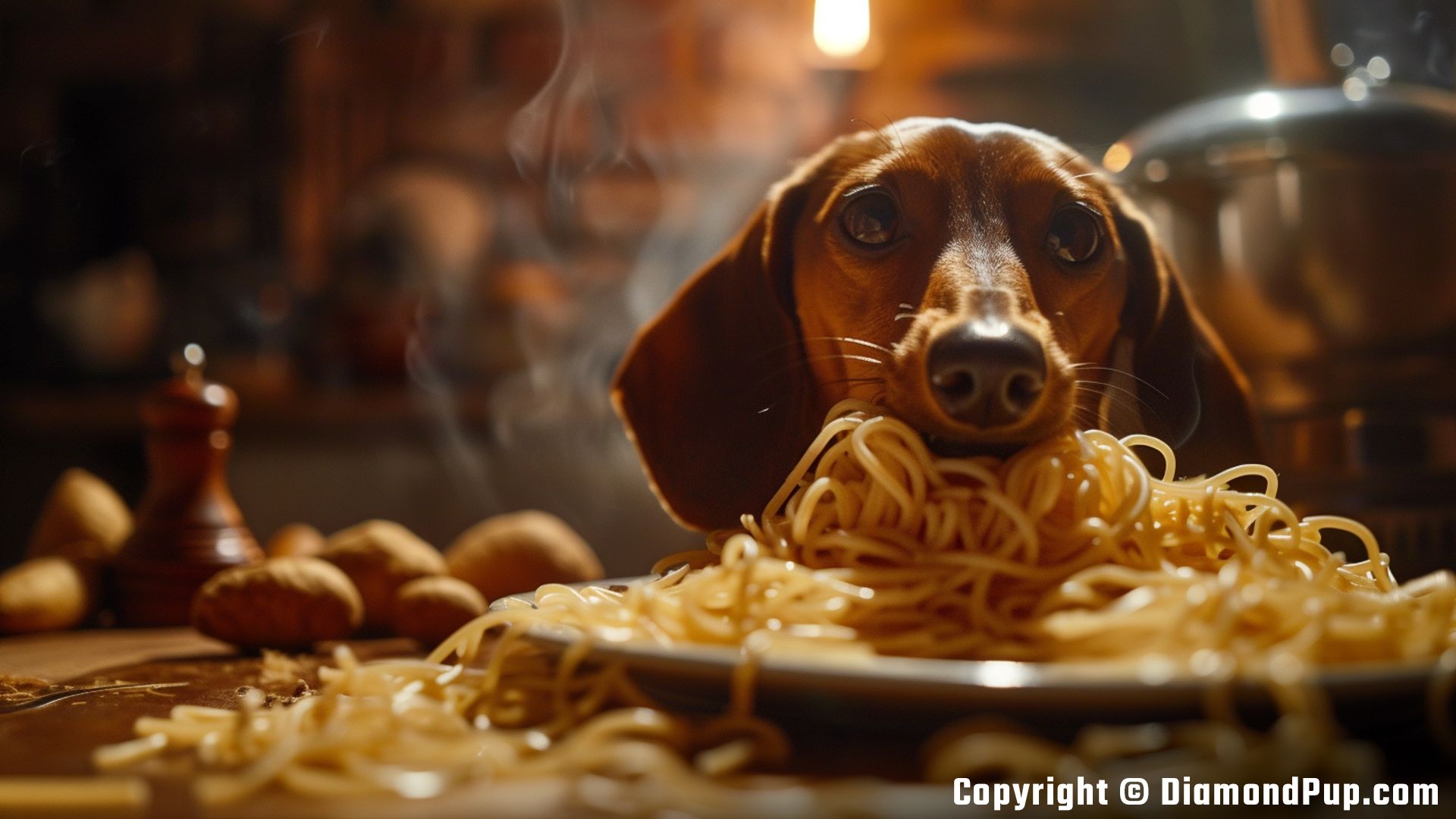
Are Pastas Good for Dachshunds?
When it comes to feeding pasta to Dachshunds, it's important to consider the nutritional content of the pasta itself. Opt for whole grain or whole wheat pasta, as they contain more fiber and nutrients compared to regular pasta made from refined flour. Fiber is beneficial for Dachshunds as it aids in digestion and helps prevent constipation, a common issue in this breed due to their long bodies. Additionally, whole grain pasta provides a slow release of energy, which can be beneficial for Dachshunds to maintain stable blood sugar levels throughout the day.
However, it's crucial to serve pasta to Dachshunds in moderation, as pasta is high in carbohydrates which can lead to weight gain if overfed. Dachshunds are prone to obesity, which can exacerbate their risk of developing back problems. So, while pasta can be a tasty treat for your Dachshund, it should not replace their balanced diet specifically formulated for small breeds like Dachshunds.
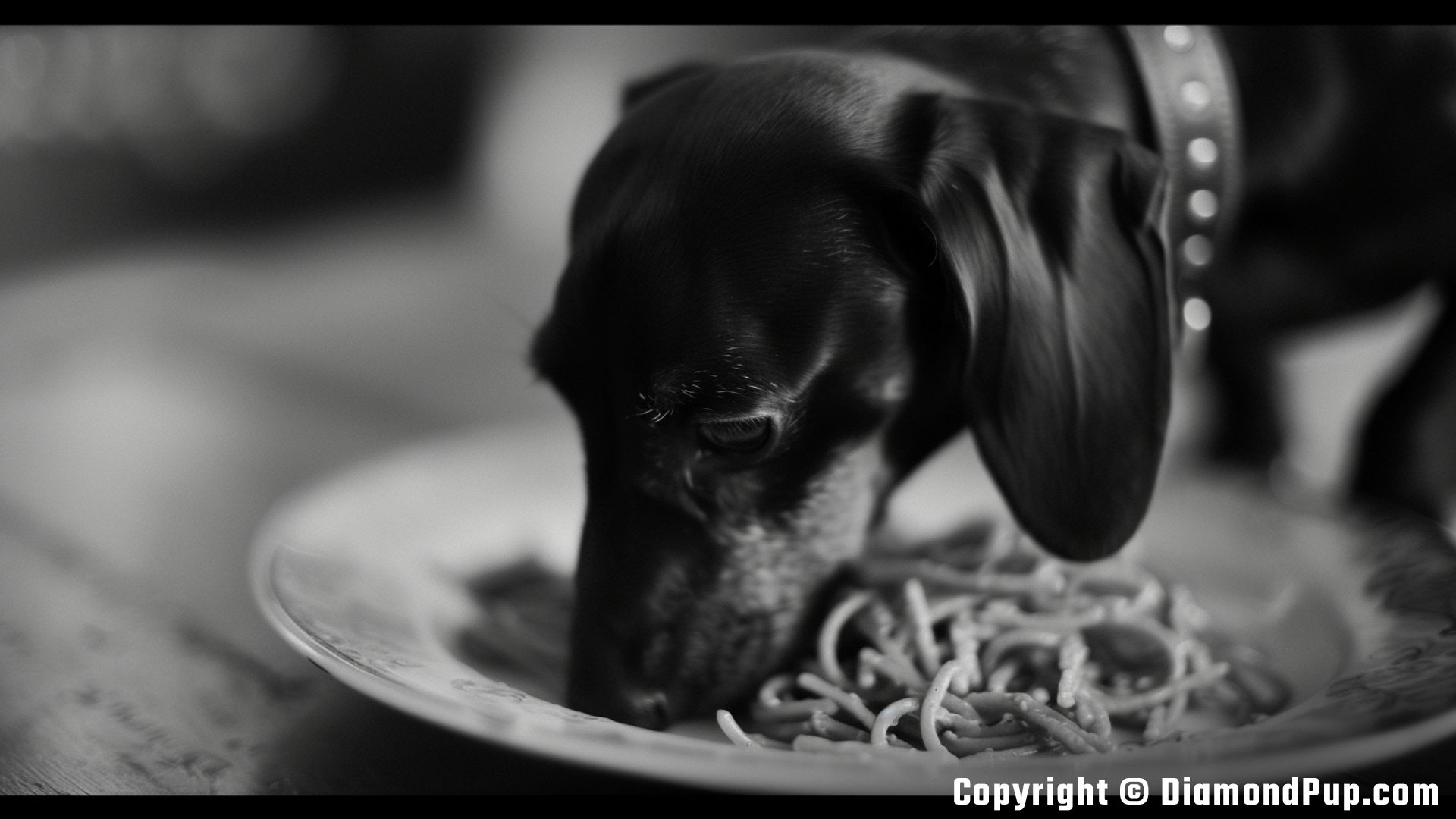
Understanding the Benefits of Pastas for Dachshunds
One benefit of incorporating pasta into your Dachshund's diet is the potential energy boost it can provide. Pasta is a good source of carbohydrates, which are the main energy source for dogs. Dachshunds, being an active breed, can benefit from the energy boost that pasta provides, especially before activities such as walks or playtime.
Additionally, whole grain pasta can also offer essential nutrients such as fiber, vitamins, and minerals. These nutrients are important for your Dachshund's overall health and well-being. Just be sure to serve pasta in moderation and avoid adding any harmful ingredients like garlic or onions, which can be toxic to dogs.
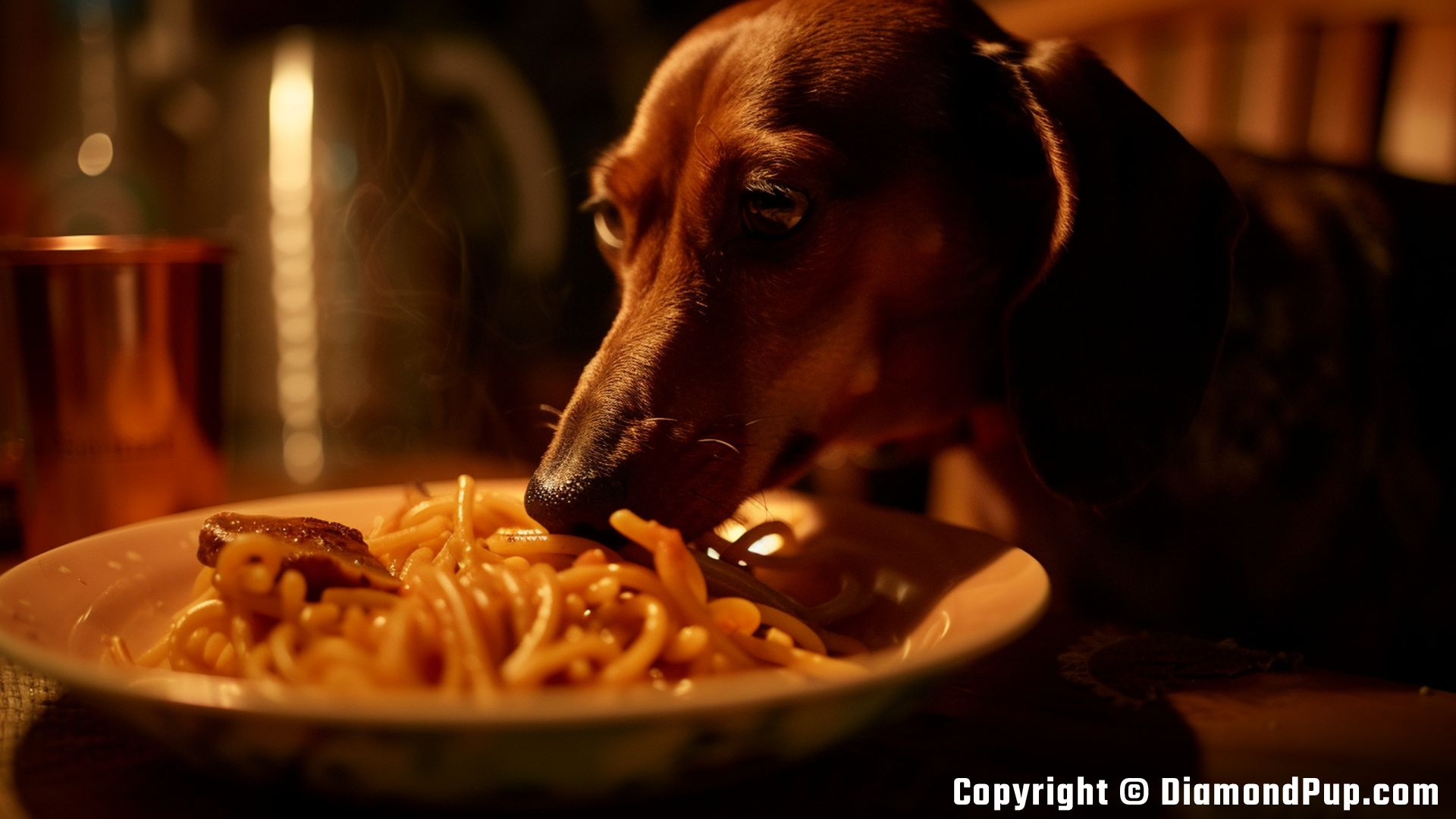
Nutritional benefits of Pastas for Dachshunds
Pasta can actually provide some nutritional benefits to your Dachshund when fed in moderation. Whole wheat pasta, for example, is a good source of fiber which can support a healthy digestive system in your pup. Additionally, whole wheat pasta contains essential nutrients such as iron, magnesium, and B vitamins that are important for your Dachshund's overall health and well-being.
When feeding pasta to your Dachshund, it's important to avoid adding any garlic or onion-based sauces as these ingredients can be toxic to dogs. Plain cooked pasta without any seasonings or sauces is the best option for your Dachshund. Remember, pasta should only be given as an occasional treat and should not replace a balanced diet specifically formulated for Dachshunds.
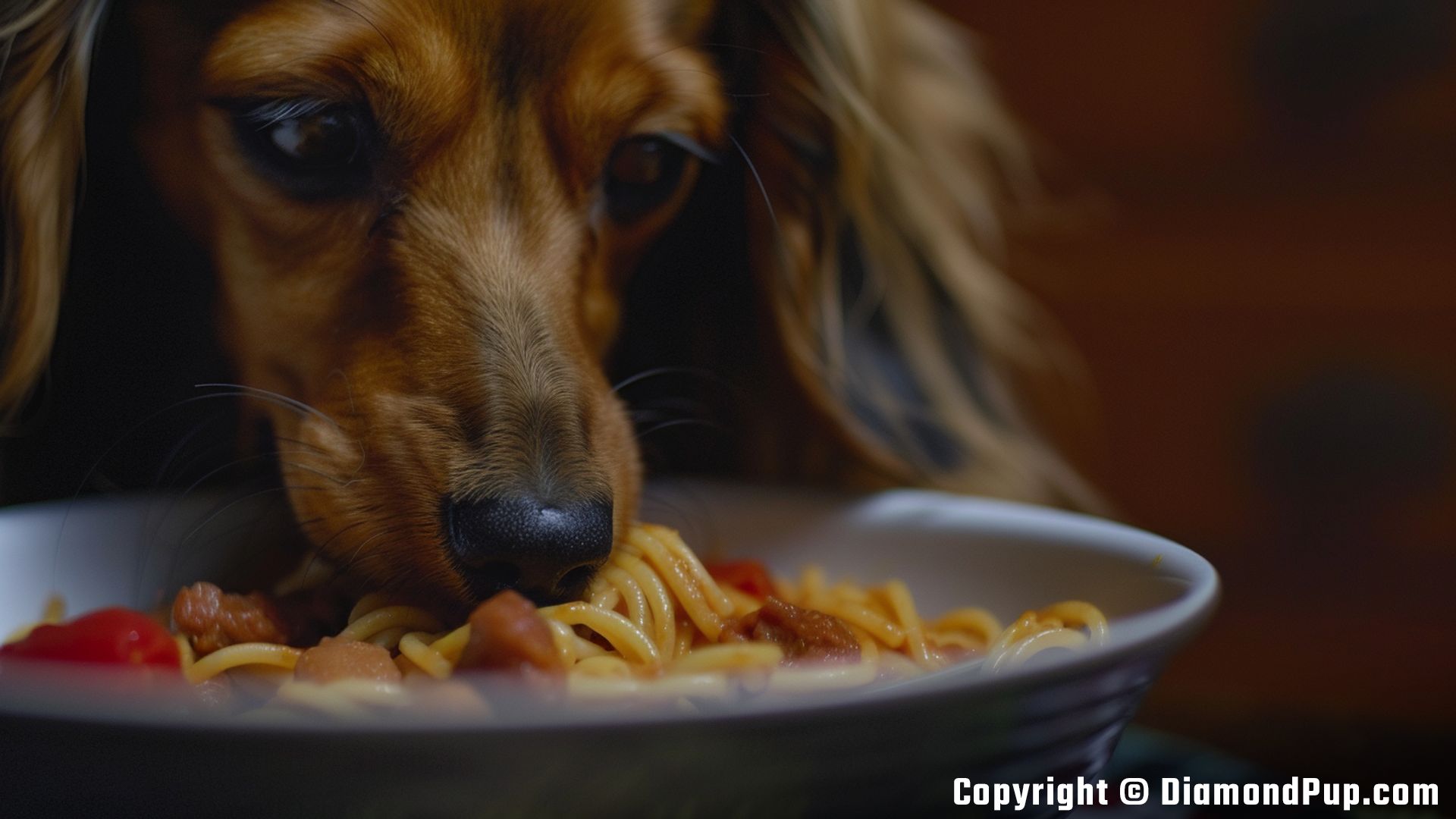
Safely Introducing Pastas to Your Dachshunds' Diet
When introducing pasta to your Dachshund's diet, it's important to start slowly and observe their reaction. Opt for plain, cooked pasta without any seasonings or sauces, as these can upset your pup's stomach. Additionally, ensure the pasta is cut into small, bite-sized pieces to prevent choking hazards, especially considering the Dachshund's small size and unique shape.
Monitor your Dachshund for any signs of digestive upset, such as vomiting or diarrhea, after introducing pasta. If your pup tolerates pasta well, you can continue to offer it as an occasional treat, keeping in mind that it should not make up a significant portion of their diet. Remember, moderation is key when it comes to incorporating pasta into your Dachshund's food rotation.
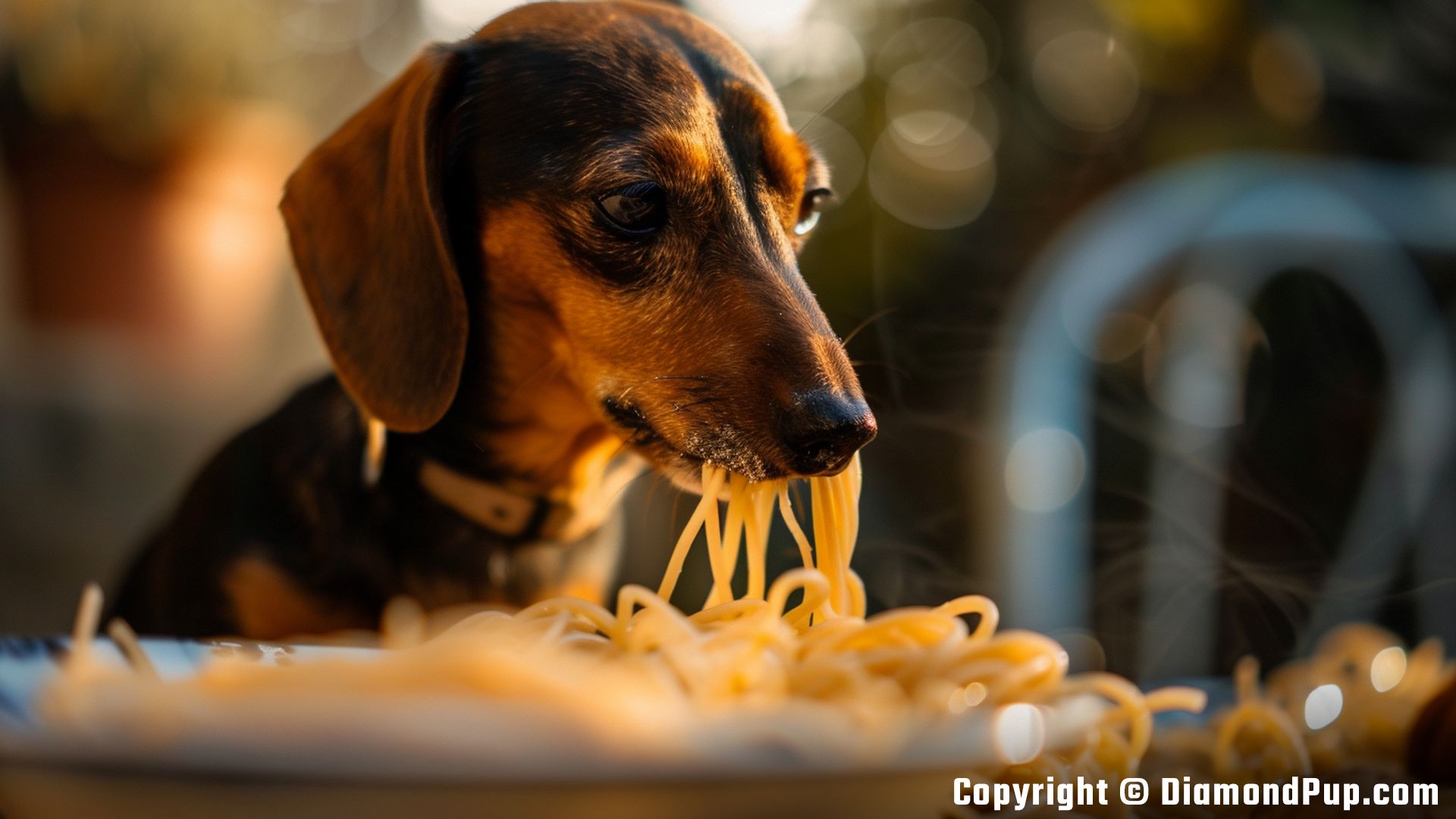
How much pasta can a Dachshund eat safely?
When it comes to feeding pasta to your Dachshund, portion control is key. Dachshunds are known for their tendency to gain weight easily, so it's important to limit the amount of pasta they consume. A good rule of thumb is to feed your Dachshund pasta in moderation, as a small treat or as part of their regular meal plan. For a standard Dachshund weighing around 11 pounds, a serving size of about 1-2 tablespoons of cooked pasta once or twice a week should be sufficient.
It's essential to remember that pasta should not make up the bulk of your Dachshund's diet. Their primary source of nutrition should come from a high-quality dog food that is specifically formulated to meet the needs of small breed dogs like Dachshunds. Additionally, always ensure that the pasta is plain and cooked without any added sauces or seasonings that could be harmful to your furry friend.
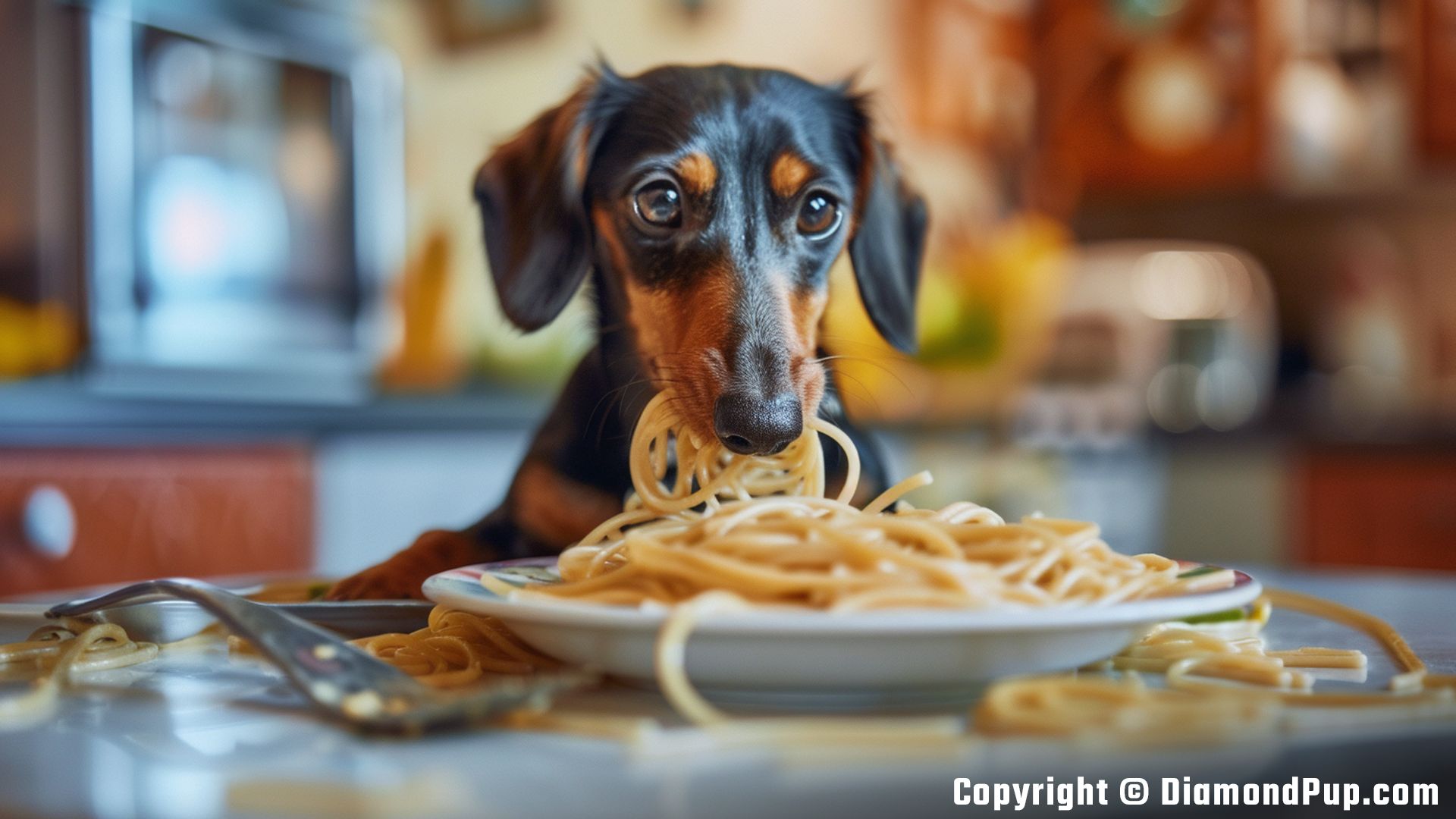
Tips to Remember When Feeding Your Dachshunds Pastas
When feeding your Dachshund pasta, there are a few important tips to keep in mind. Firstly, opt for whole wheat or grain-free pasta to ensure your Dachshund receives the necessary fiber for digestive health. Additionally, it's crucial to avoid adding any toxic ingredients such as garlic or onions, as these can be harmful to your furry friend. Secondly, portion control is key to prevent obesity in Dachshunds, so be mindful of the serving size to maintain a healthy weight. Lastly, consider incorporating cooked vegetables or lean proteins into the pasta dish to provide a well-rounded meal for your Dachshund.
Remember, every Dachshund is unique, so it's essential to monitor your dog's reaction to pasta and adjust the portion sizes accordingly. Consulting with your veterinarian can also provide personalized recommendations based on your Dachshund's specific nutritional needs and health status.
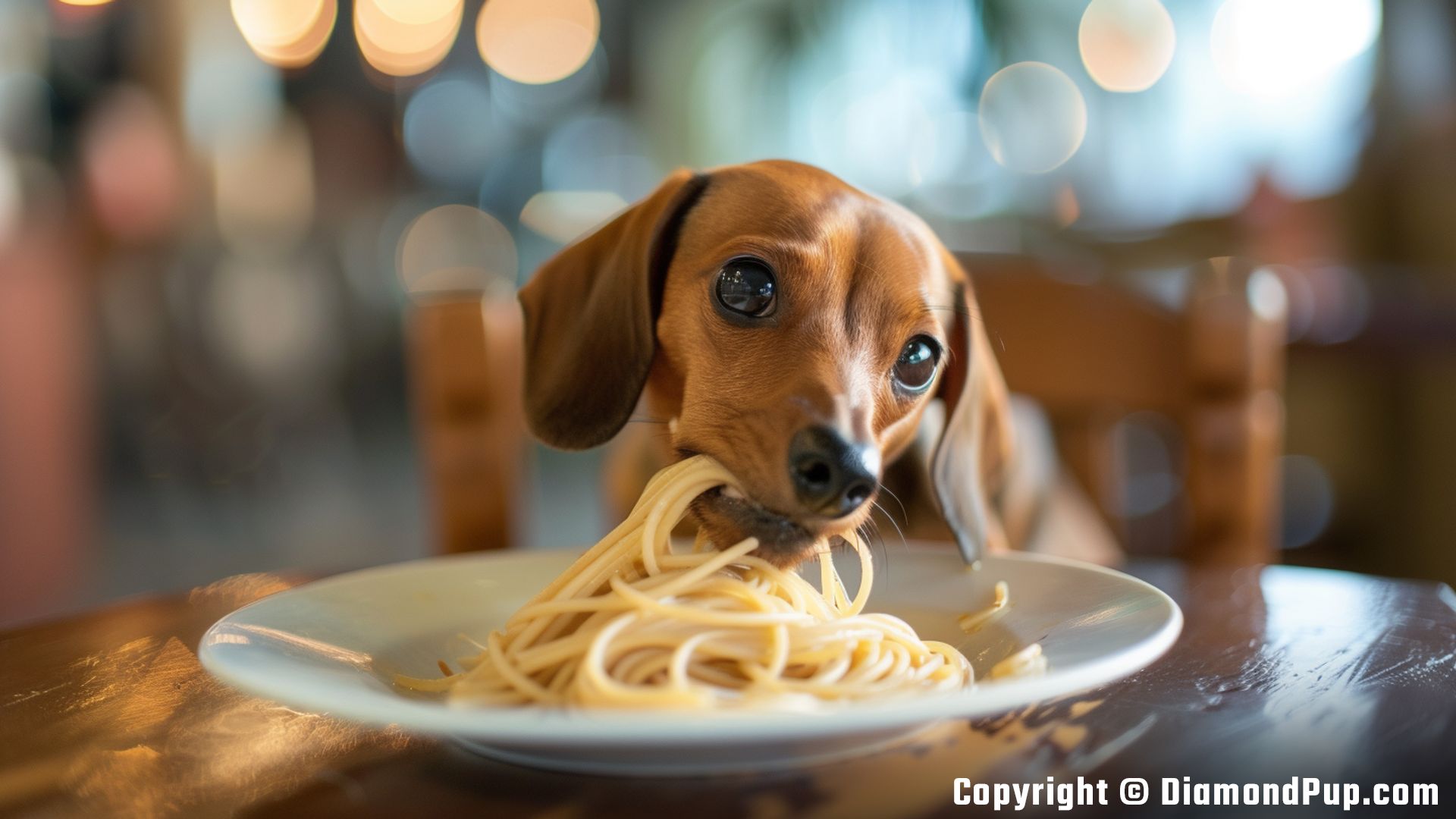
Feeding Your Dachshunds Pastas
When it comes to feeding your Dachshund pasta, it is essential to choose the right type of pasta to ensure it is safe and beneficial for your furry friend. Opt for plain cooked pasta without any seasonings, sauces, or toppings, as these additives can be harmful to your Dachshund's digestive system. Additionally, whole wheat or grain-free pasta options are preferable as they offer more nutritional value compared to refined pasta.
Remember to feed pasta to your Dachshund in moderation as it should not be a staple in their diet. Pasta can be given as an occasional treat or mixed with their regular dog food for added variety. Always consult with your veterinarian before making any significant changes to your Dachshund's diet to ensure it meets their specific nutritional needs and dietary requirements.
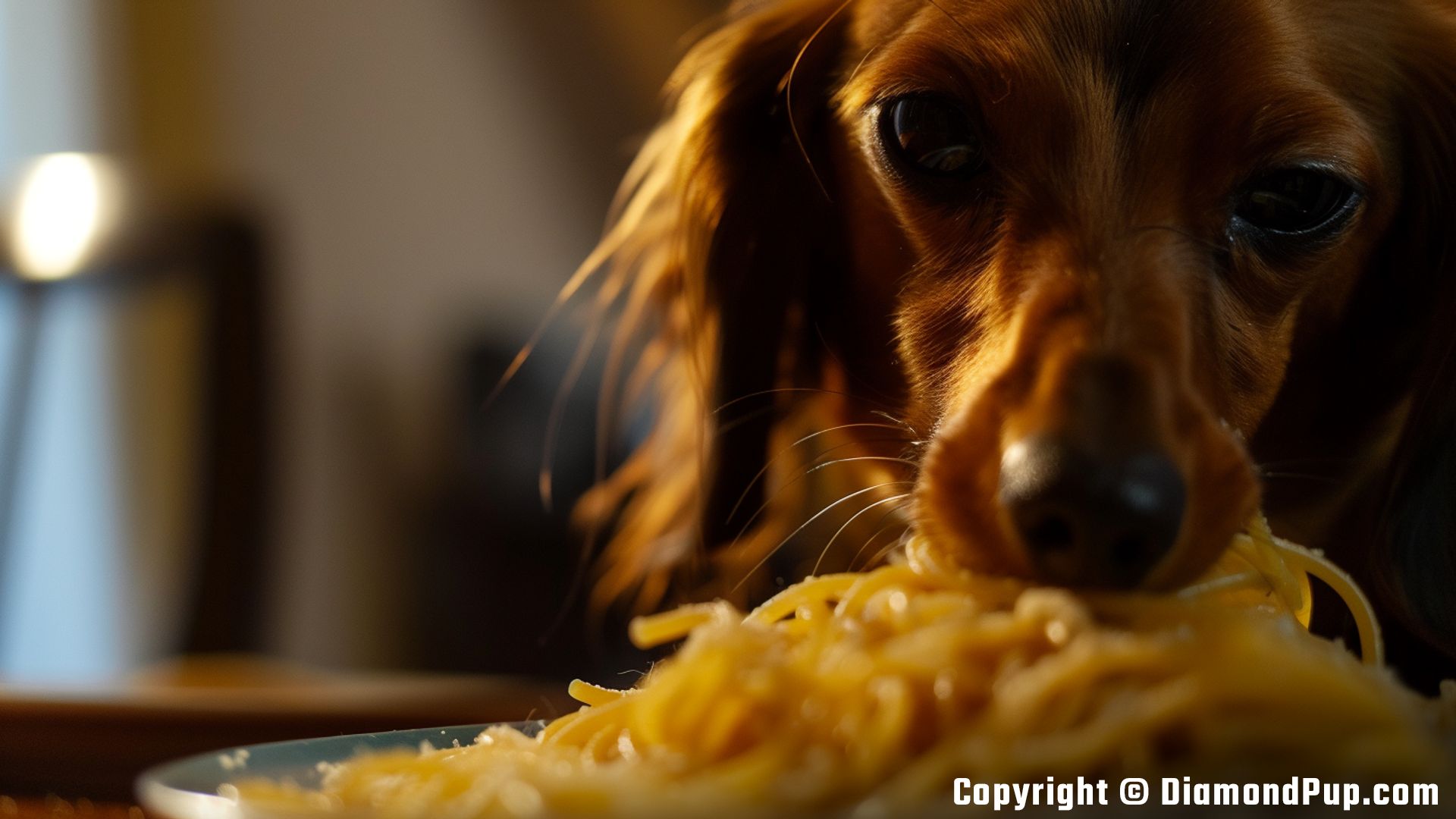
How to properly feed your Dachshunds Pastas
When it comes to feeding your Dachshund pasta, it is important to keep a few key factors in mind. Firstly, portion control is crucial. Dachshunds are a small breed with a tendency to gain weight easily, so it's important to limit the amount of pasta you give them. Additionally, opt for whole grain or whole wheat pasta over refined white pasta, as it provides more fiber and nutrients that are beneficial for your Dachshund's digestion and overall health.
Secondly, avoid adding any seasonings or sauces to the pasta, as these can be too rich or contain ingredients that may be harmful to your Dachshund. Plain cooked pasta without any additives is the safest option. Lastly, be mindful of any potential allergies your Dachshund may have to wheat or gluten, in which case it's best to avoid feeding them pasta altogether.
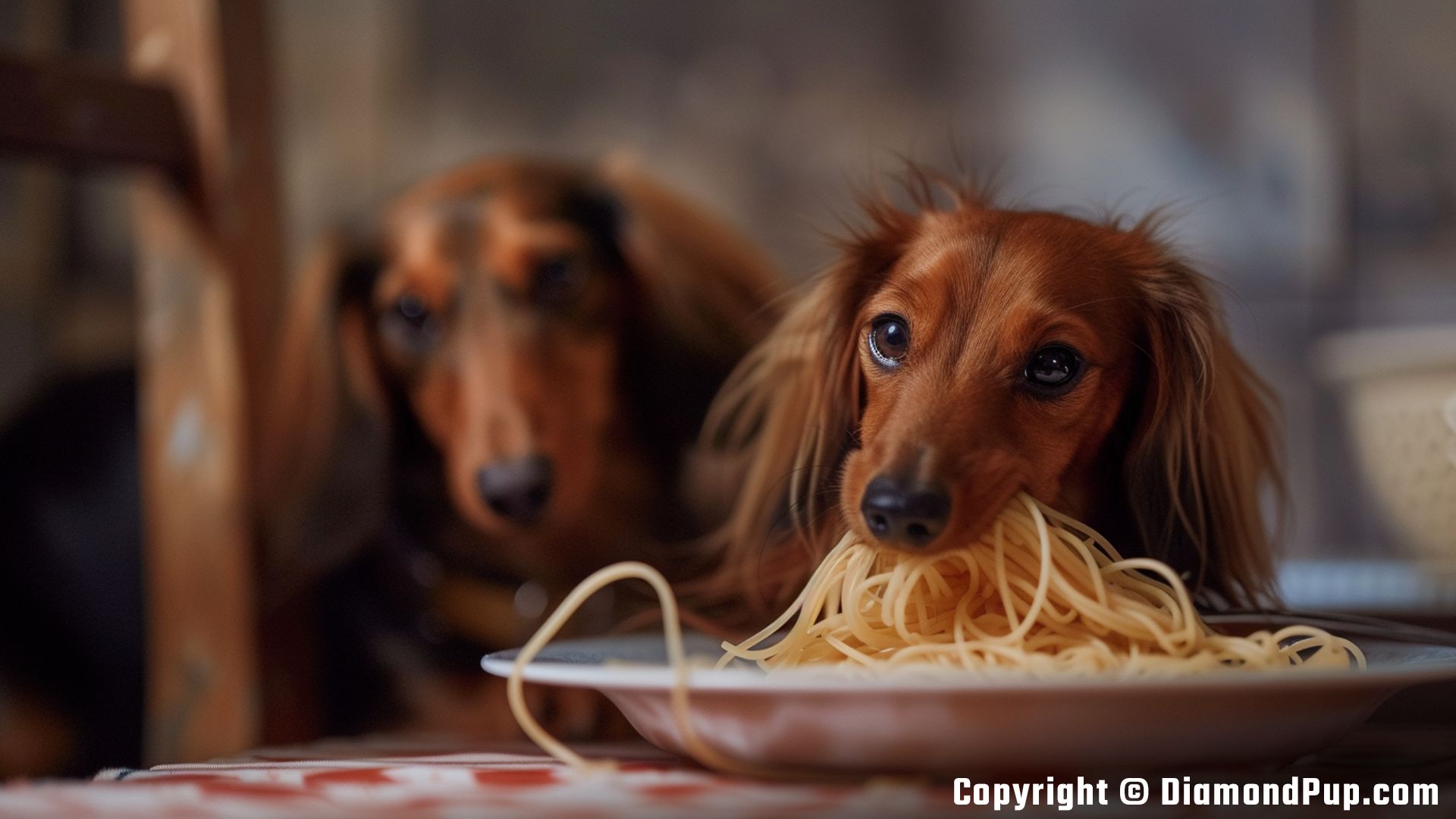
Do Dachshunds Like Pastas?
Dachshunds are known to have a diverse palate and may enjoy the taste and texture of pasta. However, it's important to remember that not all pasta dishes are suitable for your furry friend. When feeding pasta to your Dachshund, opt for plain cooked pasta without any sauces or seasonings. Avoid ingredients like garlic and onions, as they can be harmful to dogs. Additionally, be mindful of portion sizes to prevent excessive calorie intake, which can lead to obesity and other health issues in Dachshunds.
While pasta can be a tasty treat for your Dachshund, it should not make up a significant portion of their diet. Always prioritize a balanced diet that meets their nutritional needs, with appropriate levels of protein, fats, and carbohydrates. If you're unsure about how pasta fits into your Dachshund's diet, consult with your veterinarian or a pet nutritionist for personalized recommendations.
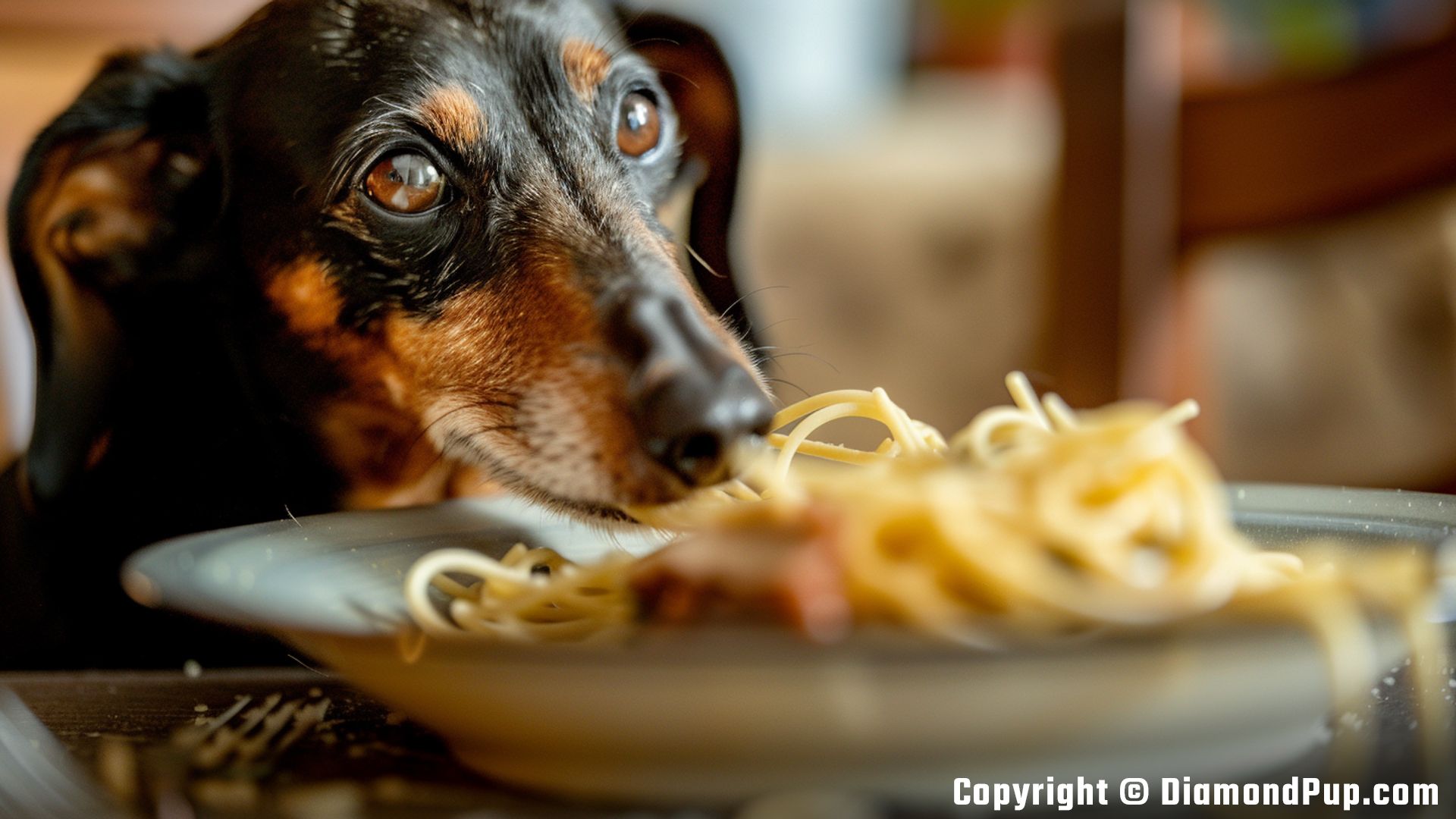
Special Consideration for Dachshunds
When it comes to feeding pasta to your Dachshund, it's important to consider their unique dietary needs. Dachshunds are prone to obesity due to their long bodies and short legs, so it's crucial to monitor their calorie intake. Opt for whole wheat or grain-free pasta options to provide more fiber and nutrients, while avoiding empty calories. Additionally, Dachshunds are known to have sensitive stomachs, so introducing pasta into their diet slowly and in moderation is key to prevent any gastrointestinal issues.
Furthermore, Dachshunds are prone to developing diabetes, so it's essential to be cautious with high-carb pasta sauces or toppings that can spike their blood sugar levels. Stick to plain cooked pasta without any seasonings or sauces that may contain ingredients harmful to Dachshunds, such as garlic or onion. Overall, pasta can be a safe occasional treat for your Dachshund as long as it is given in the right portion size and prepared in a way that aligns with their specific dietary requirements.
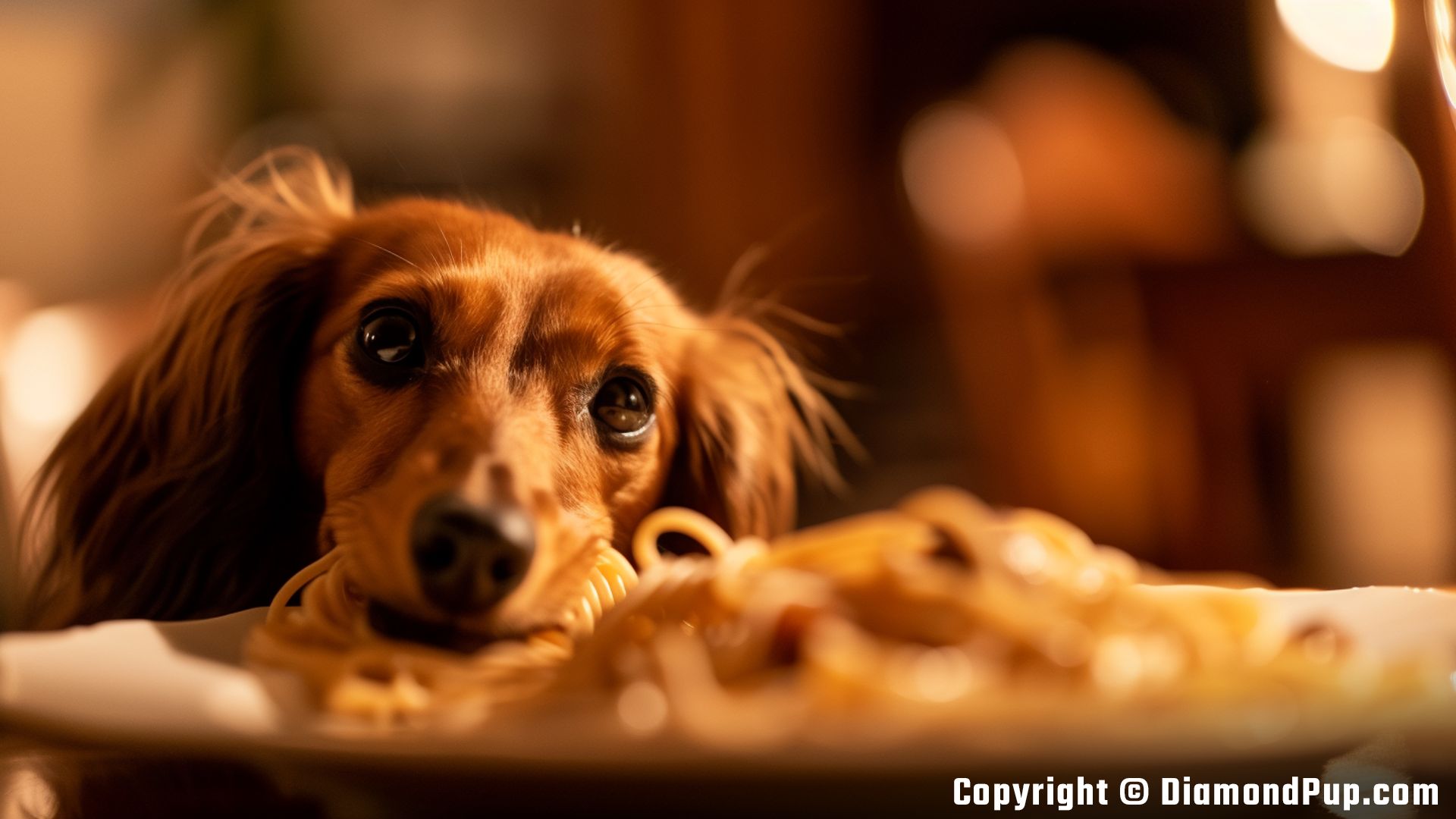
Can Puppies Have Pastas?
While pasta can be a suitable addition to a Dachshund's diet in moderation, it is important to consider a few factors when feeding it to puppies. Dachshund puppies have specific nutritional requirements to support their growth and development, including high-quality protein, essential fatty acids, vitamins, and minerals. Therefore, if you choose to include pasta in their diet, it should not replace their balanced puppy food. Instead, pasta can be offered as an occasional treat or mixed in with their regular food to add variety.
When feeding pasta to Dachshund puppies, it is crucial to cook it al dente without any added seasonings or sauces that may be harmful to their digestive system. Additionally, portion control is key to prevent overfeeding and maintain a healthy weight. Monitoring your puppy's body condition and consulting with your veterinarian can help ensure that pasta and other human foods are safely incorporated into their diet.
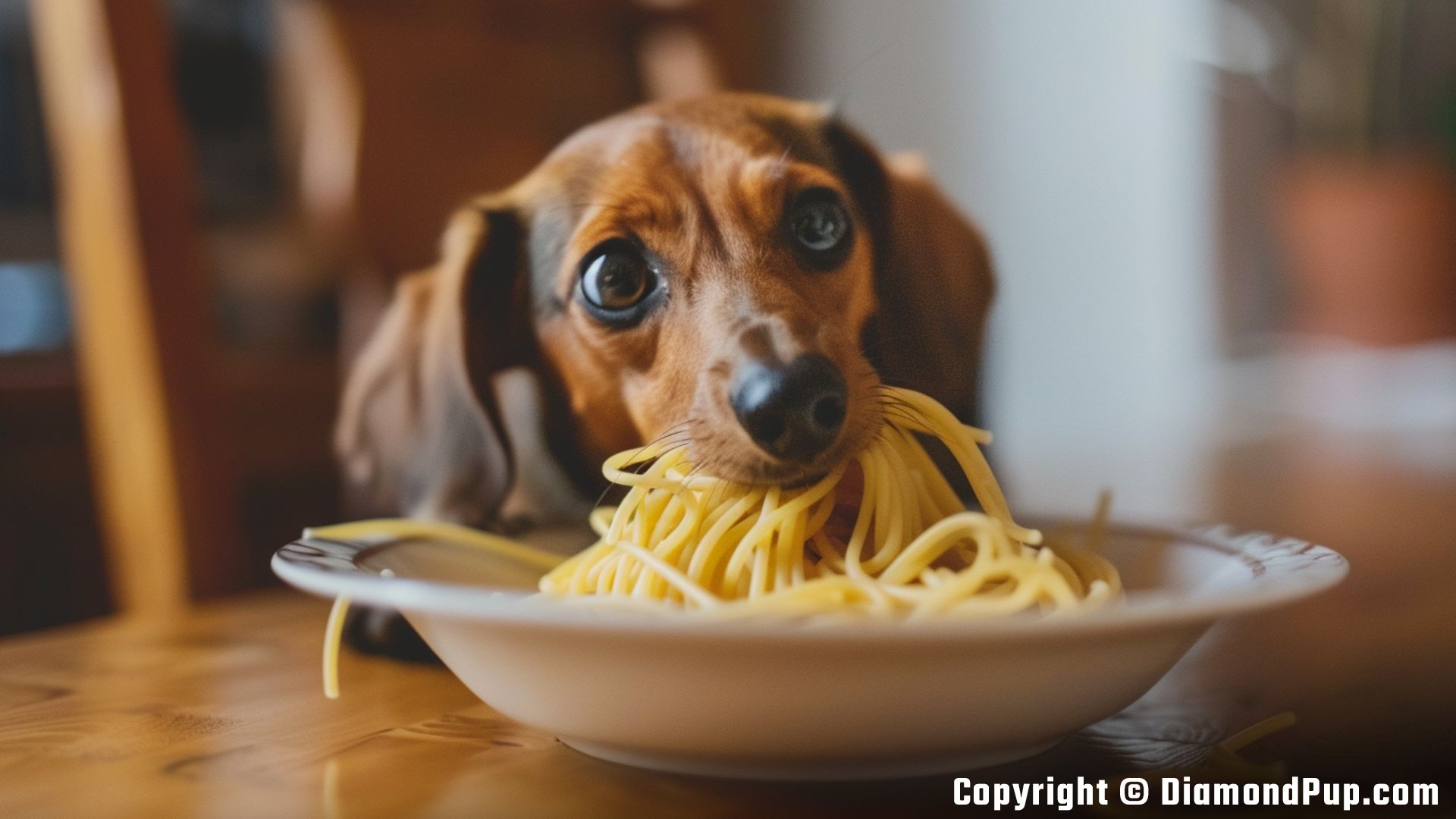
Are there any Dachshunds that shouldn't eat Pastas?
While pasta can be a safe and enjoyable treat for many Dachshunds, there are certain individuals within the breed who may need to avoid or limit their intake of this food. Dachshunds who are overweight or obese should steer clear of pasta, as it is high in carbohydrates and can contribute to weight gain if consumed in excess. Additionally, Dachshunds with certain health conditions such as diabetes or digestive issues may need to avoid pasta due to its impact on blood sugar levels and potential gastrointestinal upset. It's always best to consult with your veterinarian before introducing any new food, including pasta, into your Dachshund's diet.
Recipes for Feeding Your Dachshunds Pastas
When it comes to feeding your Dachshund pasta, it's important to choose the right type of pasta and toppings to ensure a balanced and nutritious meal. Opt for whole grain or whole wheat pasta instead of refined white pasta, as it contains more fiber and nutrients essential for your Dachshund's health. Additionally, avoid adding rich and heavy sauces that are high in fat and salt, as they can lead to gastrointestinal upset and obesity in your Dachshund.
Instead, consider topping the pasta with lean protein sources like boiled chicken or turkey, and incorporating healthy vegetables such as steamed carrots or green beans. These additions can provide your Dachshund with a well-rounded meal that is tasty and beneficial for their overall health and well-being.
Alternatives to Pastas for Dachshunds
While pasta can be a tasty treat for your Dachshund, it's important to remember that not all human foods are suitable for our canine companions. People also ask, is it safe for a German Shepherd to eat pasta or should they stick to more traditional dog diets? If you're looking for alternative options to pasta for your Dachshund, consider incorporating cooked brown rice or quinoa into their diet. These grains can provide similar carbohydrates to pasta but with added nutritional benefits such as fiber and protein. Additionally, steamed vegetables like carrots, green beans, or sweet potatoes can be a healthy and low-calorie alternative to pasta for your Dachshund.
Common Questions About Dachshunds and Pastas
One common question owners have is, "Can my Dachshund have whole wheat pasta?" Whole wheat pasta can be a good option for Dachshunds as it contains more fiber and nutrients compared to regular pasta. The fiber in whole wheat pasta can help with your Dachshund's digestion and regulate their blood sugar levels. However, it's important to feed whole wheat pasta in moderation as excessive consumption can lead to weight gain, which can be a concern for Dachshunds due to their long back and predisposition to back problems.
Another question often asked is, "Is it safe for my Dachshund to eat pasta sauce?" It is best to avoid feeding pasta sauce to your Dachshund as most pasta sauces contain ingredients like garlic and onions, which are toxic to dogs. These ingredients can cause gastrointestinal upset, damage to red blood cells, and other serious health issues in Dachshunds. It's safer to stick to plain, cooked pasta without any sauces or seasonings when sharing pasta with your Dachshund.
Subscribe Now
Stay updated with the latest news and articles! We'll keep you updated on the latest tips for your pet Dachshund
